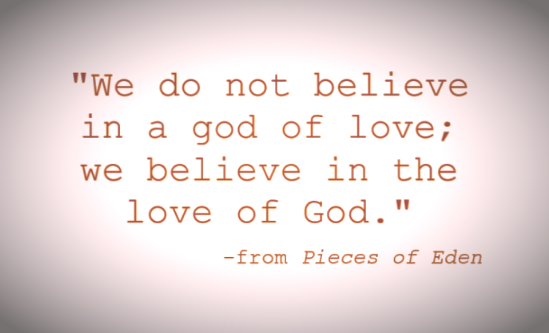 “We spend all this time looking for something greater than us; something that will bring us all together. But what if it’s not even there?” -MARS: S1, E5 Mars is the Red Planet, blood red when it shines, and has taken its name from the Roman god of war. As far back as our species can remember, the stars and planets have held deep spiritual significance for us – further back even than the ancient Greeks and Romans. Recent analysis of the oldest cave paintings reveal that they match the positions of constellations and stellar events. Turns out, what we always thought were “primitive” “proto-religious” imaginings were actually sophisticated observations of the heavens, right in the middle of the last ice age.[1] And they may have been spiritual too, for all we know. Did they think about the stars in religious terms, perhaps astrologically? CS Lewis had a lot to teach us about the enduring spiritual symbolism of the planets and stars. You know that already, if you’ve read his cosmic trilogy, or one of his poems like “the Planets” or “the Turn of the Tide”. But Lewis had some concerns about humanity literally reaching out into space. “Hush, be still. Outer space/Is a concept, not a place./Try no more. Where we are/Never can be sky or star.”[2] Lewis wanted us to think about what we’re taking with us when we go, and why we’re leaving in the first place. He rightly understood that the leaving and the search were essentially spiritual in nature. “From prison, in a prison, we fly;/There’s no way into the sky.” It's not just spiritual either; it’s become basically religious. For a hundred years we’ve been building a massive myth about space and the universe, looking for ways to express our fears and hopes and anxieties out into the context of the other planets; we look there for other life so we might know we’re “not alone”; we contemplate a great, apocalyptic struggle for survival; we hope it will unite us; we fear it will end us. All of these (and more) are drawn together into a single program on Netflix: MARS. This show contains factual people in a documentary inter-spliced with a fictional drama about the first manned mission to Mars. What I’m going to demonstrate – and it won’t be hard – is that while the space race started out as an exercise in nationalism, it has become overtly religious. Not just spiritual: Religious. I noticed it during the first episode, when many of the people being interviewed started to discuss colonization in terms of continuing on with the human race. What the experts were saying was that, one day, earth will no longer have the ability to have any human life, or else all human beings on earth will die off, and the only way for humanity to continue on is to do so elsewhere. This is nothing more or less than a definition of “Salvation.” In this religious view, the thing we need saving from is the final death of the last human being; the salvation is performed by our own human might and main; the means is interstellar travel. Oh by the way, the priesthood of this new religion is comprised of the scientists and the innovators who are inventing the technology to make it happen. Of course, this is all implied. Nobody in the first episode says We’re really talking about classical Salvation. You only hear it underneath what they’re saying. In the fictional portion, you see it when one of the main characters dies, and then moves out onto the landscape (as a ghost, or a spirit, or a post-mortal entity) and encounters his dead father. "I knew I'd find you up here" he says. Now heaven isn't viewed as a place in the clouds; it's a barren, rocky terrain with nothing but stone and sand as far as the eye can see. But in order to have my suspicions truly confirmed, I had to wait all the way until episode 2. That’s where it got blatant, and the first one to make it blatantly religious was Ann Druyan, a writer and communicator who was married to Carl Sagan, with whom she co-wrote the famous “Cosmos” miniseries. Listen to how she put it: “I think sending humans to space is our latest expression of the ancient human practice called human sacrifice; but really in the service of something much greater.” “Human sacrifice”? (I can almost hear someone asking, Well, I guess it the person being sacrificed is willing, what’s the harm?) Whether they’re willing or not isn’t the point. The point is that it’s clearly a fixed religion, and now we know what price its adherents are willing to pay in pursuit of their goals. “Something much greater”? There have been lots of different motives for human sacrifice down through the ages, but survival, knowledge, power, and resources have all been part of the mix. By sacrificing pilots and astronauts, we're not looking for "something much greater"; we’re looking for exactly the same things that other ancient religions were seeking – we’re just looking in a new location. And by telling ourselves that our motives are superior, we seek to justify our sacrifices in a way that those more direct, primitive practices didn’t. And of course, we’re fooling ourselves in the process. Just as blatant is the moment in the fourth episode, when Roger Launius, a historian who’s worked for NASA and the Smithsonian, speaks of the search for extra-terrestrial life: “There’s almost a religious belief that we will find it [life] eventually if we just keep looking; and it’s based upon faith and not knowledge, in the same way that religion is based upon faith and not knowledge.” Well, there you have it. For many people, the Salvation which humanity yearns for is tied into the space-myth we’ve been telling for the last century. We want there to be life on other planets, totally distinct from us, and accidental in its origins. We want to take our species to the stars, so that our story will last as long as the galaxy itself. We want to feel noble because of the motives which have caused us to explore, advance, and progress. We want to pay for these things with the lives of those whose shed blood will represent all of us. We believe those who repeat the myth, the storytellers and the experts, and we trust them with what can only be described as zeal. And for those who aren’t yet on board – there are shows like MARS which seek to strengthen the faithful and convert the agnostics. Of course, I’ll continue to watch the show because I do admire the spirit of adventure and exploration, just as I admire compelling drama, and innovation. I’m hugely entertained by all of those things. I just don’t have the delusion that any of those things can save us. [1] https://www.ed.ac.uk/news/2018/cave-paintings-reveal-use-of-complex-astronomy [2] Lewis, CS, Cradlesong. For an even more explicit warning about carrying our humanity out into the galaxy, try reading his poem “Prelude to Space.”
0 Comments
Leave a Reply. |
Click on the link to go right to Josh's Amazon Author page.www.amazon.com/Josh-McFarland/e/B0868TJ4CP/ref=dp_byline_cont_book_1 Archives
February 2021
Categories |
Site powered by Weebly. Managed by Hostgator



 RSS Feed
RSS Feed